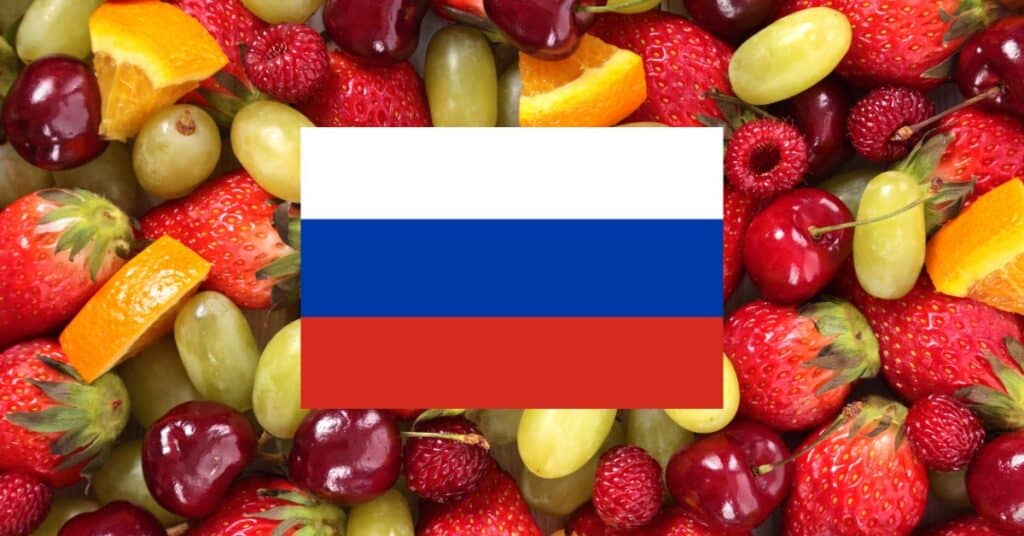Learning fruits in Russian vocabulary is a fun way to expand your language skills. By learning the names of different fruits in Russian, you can improve your vocabulary and communication skills. Knowing fruits in Russian can also be useful when traveling to Russian-speaking countries or when trying new foods. This knowledge can help you navigate menus, grocery stores, and markets with ease. Whether you are a beginner or just looking to brush up on your language skills, learning fruits in Russian vocabulary can be an enjoyable and practical way to enhance your language learning experience. Start exploring the world of Russian fruits today!
Games
Study Resources
Vocabulary
| English | Russian |
|---|---|
| apple | яблоко |
| apricot | абрикос |
| avocado | авокадо |
| banana | банан |
| blueberry | черника |
| cherry | вишня |
| coconut | кокос |
| fig | инжир |
| grape | виноград |
| grapefruit | грейпфрут |
| kiwi | киви |
| lemon | лимон |
| lime | лайм |
| mango | манго |
| melon | дыня |
| nectarine | нектарин |
| orange | апельсин |
| papaya | папайя |
| peach | персик |
| pear | груша |
| pineapple | ананас |
| plum | слива |
| raspberry | малина |
| strawberry | клубника |
| watermelon | арбуз |
Quick Facts
- Fruits in Russian are called "фрукты" (frukty).
- Russia has a wide variety of fruits grown locally, including apples, berries, and cherries.
- Fruits are an important part of the Russian diet, providing essential vitamins and nutrients.
- Russians enjoy eating fruits in various forms, such as fresh, dried, and in juices.
- Fruits are often used in traditional Russian dishes and desserts, adding flavor and sweetness.
Downloads
Vocabulary List
Download:fruits_in_russian.pdf









